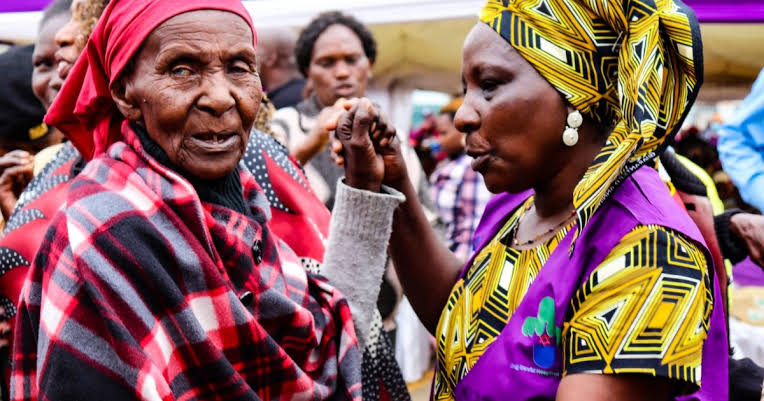Kenya is facing a major shift in its population as the number of elderly people continues to grow at a fast rate.
New data shows that the country’s elderly population has now passed 3.2 million, which is almost 6 per cent of the total population. This is a sharp rise compared to the 2019 census, where Kenyans aged 65 and above made up only 3.9 per cent, or about 2.74 million people.
This increase is now creating pressure on government services and exposing serious policy gaps in how the country supports its older citizens.
According to a report by the National Council for Population and Development, elderly Kenyans are being left behind and facing neglect. Many of them, especially in rural areas, are struggling with poverty, abuse, and loneliness after being abandoned by their children.
The NCPD is now pushing for the Older Persons Act to be strengthened so that proper laws can be put in place to protect the rights and dignity of older people in Kenya.
Speaking on the issue, geriatric specialist Dr. Tasneem Yamani said the country is not ready for this ageing population, which is growing fast.
She explained that population ageing is a global issue but Kenya has not yet taken it seriously.
Dr. Yamani warned that the number of elderly people has already doubled and the country is running out of time to act.
This group is among the most vulnerable and needs urgent attention. Dr. Mohamed A. Sheikh, the Director General of NCPD, added that by 2030, the number of Kenyans over the age of 60 is expected to hit 3.6 million.
He pointed out that this rise is due to better healthcare and people living longer, but it also means the government must now step up and provide proper care systems for the elderly. This includes everything from healthcare to social protection and creating a strong caregiving system that can meet the growing demand.
At the moment, elder care homes are few in Kenya, and most are run by religious groups or private organisations. NCPD is now calling on the government to create more of these facilities and put in place strong laws to support them.
Morris Omondi, the CPF Foundation Manager, said there should be a clear law like the Children’s Act, but for older persons. He stressed that the government must have a clear role in supporting and protecting elderly citizens.
Adding to the challenge is the fact that birth rates are dropping. Kenyan families now have an average of three children, which is much lower than the seven or eight children per family seen in the past.
Dr. Sheikh explained that this is partly due to women staying in school longer and getting married later. As a result, the population structure is changing, with some counties already showing more elderly people than children.
Counties such as Murang’a, Nyeri, and Vihiga are already seeing this change, making it clear that the country must act quickly to respond to this new reality.





















Add Comment